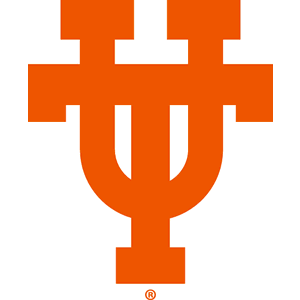Putting healthcare in the hands of the individual
Imagine waking up with a sore throat and an ache throughout your body. A quick search of WebMD says you probably have either a cold or the flu. You feel you should find out what's going on but a trip to the doctor is impossible given your busy day.
Wouldn't it be nice to have an at-home device that would allow you to swab your cheek and diagnose the problem yourself?
That is exactly what the researchers in Dr. Andrew Ellington's lab at the University of Texas at Austin are developing. The Ellington Lab specializes in, among other things, a field known as point-of-care diagnostics. In contrast to traditional tests like MRIs and biopsies, point-of-care diagnostics can deviate from the hospital-laboratory pipeline and bring the test to the patient, preferably at a low-cost, requiring only minimally invasive procedures, and providing results in less than a few hours. Successes has already been found in lower income country and military field hospitals as well as in commercial markets, as epitomized by the home pregnancy test. Specifically, the Ellington Lab has developed and is currently optimizing a relatively versatile nucleic acid reaction that first detects a disease (e.g. flu, malaria, etc.) or other health marker in a human sample (e.g. spit) and then reports it via a fluorescent signal. A variety of handheld devices (such as the ubiquitous smartphone or glucometers or pregnancy test kits) already exist; the key idea is to develop a simple, almost free adaptor that can transduce almost any disease or health marker into these readers. The Ellington lab has begun to develop such a transducer that can be reconfigured at will. Imagine determining that you have the flu... through a glucometer, or that your vitamin D levels are low... through a pregnancy test!
Based on current research levels, Dr. Ellington anticipates having a prototype point-of-care transducer within a year. The development of such prototypes however sits at that uneasy Valley of Death between fundamental research and product. Funding in this area would go towards the production of transducers that, along with off-the-shelf devices, could then be distributed to individuals for monitoring a test case, such as influenza. Later applications could help individuals diagnose symptoms of other infectious diseases (such as tuberculosis), detect food allergies or allergic reactions, or potentially even measure the effectiveness of nutritional supplements. The key innovation would be building the community for diagnostics, rather than selling the diagnostics per se. Just as computers abetted the development of social networks, the availability of cheap (virtually free) diagnostics will abet the development of focused healthcare communities.
Impact
In Clinics: Traditional hospitals and even doctors' offices rely on extensive facilities and laboratory networks to process their patients' varying medical tests. However, clinics that serve remote, rural, and underserved populations as well as transitory clinics in low-income countries and military occupations cannot necessarily support the infrastructure required for such testing. By avoiding the overhead costs of infrastructure, point-of-care diagnostics can be devised at a more reasonable cost-per-test and frequently can be devised to yield results in a matter of minutes or hours. As such, they offer a variety of benefits over traditional diagnostics:
- Instead of describing symptoms to your doctor or submitting to a physical exam that may (or may not) catch all underlying symptoms, we can devise point-of-care diagnostics for doctors to administer in the room that would provide a quantitative analysis of your symptoms.
- Reduced costs will inversely increase the number of patients who will have access to the tests, broadening the market and increasing quality patient care.
- Increased access to early diagnostic tests will also expedite the delivery of life-saving preventative or secondary care.
At Home: Just as bypassing the traditional hospital diagnostic pipeline would revolutionize in-clinic patient services, so would at-home point-of-care diagnostics likely revolutionize our health care system by creating new models for therapeutics, reimbursement, and insurance. Moreover, their potential is already evident in the widespread success of at-home diagnostics currently available in stores, including at-home pregnancy tests, glaucoma tests, and diabetic insulin monitors. At-home point-of-care diagnostics offer a variety of benefits over traditional health care options:
-
Access to diagnostic tests over the counter removes the final barrier between patient and diagnostic, accelerating the timeline for initial diagnosis and further expediting the delivery of life-saving preventative or secondary care.
-
Many conditions (including heart problems treated with anticoagulants) require consistent monitoring; others (such as seasonal allergies or dietary sensitivities) could very well benefit from such. As evident with diabetics however, it can quickly become burdensome when such monitoring requires the regular intervention of medical professionals. At-home diagnostics can offer a convenient alternative and thus, relieve the burden of long-term, chronic care.
-
Whether we are motivated by natural curiosity, immediacy, or privacy, over-the-counter diagnostics empower us to explore our own health on a more cost-effective and frequent basis. For example, Whole Foods and other natural product providers thrive on the touted benefits of natural remedies and supplements. However, there are currently few studies that give definitive answers as to the real benefits of these supplements in our diet. The Ellington Lab could, for example, develop a diagnostic to track the effectiveness of nutritional supplements, allowing individuals to determine whether such regimens are worth the expenditure.
-
Altogether, these benefits represent a shift away from dependence on physicals and clinic visits toward greater patient participation. This offers a potential solution to our country's ever-rising healthcare costs, especially as the baby boomer generation begins entering retirement. Yet in doing so, as with any paradigm shift, point-of-care diagnostics offer both an opportunity and a challenge to the traditional insurance and reimbursement model.
Globally: In addition to creating novel health care models, point-of-care diagnostics could be expanded to create networks to track health not just on an individual basis but also on a larger commercial or world-health level. Using smartphone apps, data could be immediately uploaded to create virtual maps to track influenza epidemics. Transducers for off-the-shelf devices could alternatively be distributed to key patient advocacy groups, like the Celiac community, which already have a vested interest in monitoring particular health care indicators on a regular basis. This would allow affected communities to cohere around their own understandings of symptoms and treatment and empower individuals to play a more serious role in their own health care.
Bio
Dr. Andrew Ellington received his B.S. in Biochemistry from Michigan State University in 1981 and his Ph.D. in Biochemistry and Molecular Biology from Harvard in 1988. As a graduate student, he worked with Dr. Steve Benner on the evolutionary optimization of dehydrogenase isozymes. His post-doctoral work with Nobelist Dr. Jack Szostak at Massachusetts General Hospital focused on methods for the in vitro selection of functional nucleic acids; it was during this work that Dr. Ellington coined the term 'aptamer'. Dr. Ellington began his academic career as an Assistant Professor of Chemistry at Indiana University in 1992, and continued to develop selection methods. There he received the Office of Naval Research Young Investigator, Cottrell, and Pew Scholar awards. In 1998, Dr. Ellington moved to the University of Texas at Austin and is now the Fraser Professor of Biochemistry in the Department of Molecular Biosciences. He has published over 380 papers and holds 16 patents. Dr. Ellington was a member of the Defense Science Studies Group of the Institute for Defense Analysis, and has actively advised numerous government agencies on biodefense and biotechnology issues, including serving on the Biochem2020 panel of the DIA. Most recently he was named a National Security Science and Engineering Faculty Fellow, an AAAS Fellow, and a Fellow of the American Academy of Microbiology. He has served on the boards of numerous companies as well as contributed to the founding of both Archemix and b3 biosciences. Dr. Ellington's lab works on the development of nucleic acid circuitry for point-of-care diagnostics and the accelerated evolution of proteins and cells through the introduction of novel chemistries. The results of his work have generated both insights into the origin of life and applications in biotechnology.
Dr. Ellington's inspiration to learn and generate solutions for problems facing the healthcare field began in childhood. As a boy growing up in Kansas, he spent his summers mowing lawns to earn spending money. One summer day, he accidently mowed over something hard and was shocked to see he had cut a turtle shell right off. Saddened but also curious, Dr. Ellington found himself intrigued by the biology of the turtle; nature was right in front of him, offering him a glimpse into one of its many secrets. That moment began a life-long pursuit of discovering not only how things work but moreover how to make them work better. As an adult, this pursuit now drives his philosophy that we should be able to empower ourselves in our own lives, particularly in our healthcare.
In line with this overarching philosophy, the Ellington Lab is structured as an Exploratorium where individuals are empowered to identify and pursue new ideas. The lab's history of developing novel approaches derives from an emphasis on collaboration between researchers both from within and outside the lab who contribute expertise from a wide variety of fields. This includes not only established graduate students and researchers but a cohort of young minds as well: starting in high school and college, the Ellington Lab endeavors to enrich and inspire young students to find the power within themselves to convert ideas into realities. This architecture of both people and philosophy has resulted in a lab highly attuned to 'making product' and getting results out into the community.
Dr. Ellington currently has 16 patents relating to his research on aptamers (for signaling/detection), nucleic acids, ribozymes, biospecific contrast agents, molecular beacons, cellular profiling, antibody repertoires, hydrogel sensors, etc.
Dr. Ellington has more than 380 peer-reviewed publications on a wide range of topics including both (i) the development of point-of-care diagnostics and (ii) the optimization of nucleic acid reactions for detection purposes.
Dr. Ellington currently receives funding from the Department of Defense (DARPA, DTRA, ONR, and AFOSR), the National Institutes of Health, the National Science Foundation, MD Anderson Cancer Center, the Welch Foundation, and the Gates Foundation.
His nucleic acid diagnostics research in particular has been funded by the Gates Foundation, NIH, and DARPA.
In the News
A self-described evolutionary engineer, he uses evolutionary principles to evolve molecules and organisms that serve all sorts of functions
Publications
Videos
Awards
American Academy of Microbiology
Fellowship
National Academy of Sciences
Panel Member
President
University of Texas at Austin
American Association for the Advancement of Science
Fellowship
International Society for Nanoscale Science, Computation and Engineering
President
National Security Science & Engineering
Faculty Fellowship


